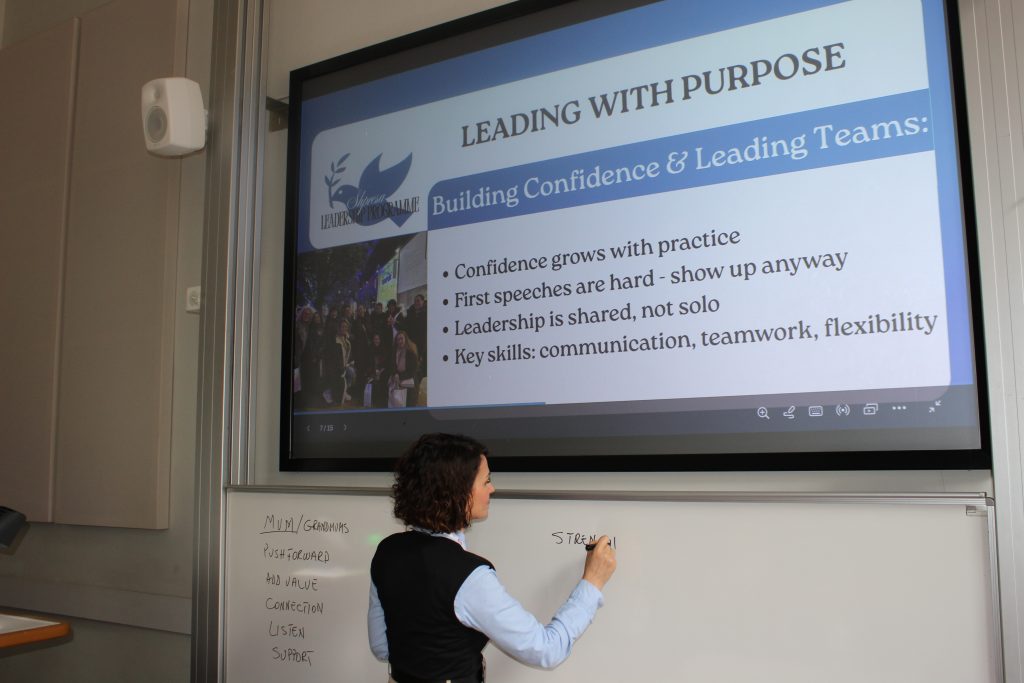
As a part of Shpresa’s Leadership Programme – The third cohort of Leaders were invited to The School for Social Entrepreneurs to meet Alastair – the CEO. This was an incredible opportunity given the history of collaboration between the two in supporting social entrepreneurs and community development within the Albanian community in the UK. SSE has partnered with Shpresa on various programmes In order to reach new communities and Shpresa, in turn, has leveraged SSE’s training and resources to equip it’s members with skills and knowledge to address social issues and build stronger communities.
Michael Young – the founder of The School for Social Entrepreneurs, had once said that he volunteered for self- interest and enlightenment purposes – ‘There is something in it for those who volunteer and give their time for others’. He had bought the SSE building after selling his creation – Language Line – which he created after his frustration of overhearing a non-English speaking patient being consented for a procedure in English – without translation, without clarity.
After telling us a little bit about Michael Young – Alastair Wilson shared lessons that he had learned about Social Entrepreneurship with myself and others who had the privilege of visiting SSE’s offices.
Alastair explained that entrepreneurship is something that cannot simply be taught in a classroom, you have to learn by doing. You have to take the risk and get it wrong and If you keep at it, you’ll be able to build something better the next time. In terms of increasing confidence in other people – Alastair shared that the best way to do this was to bring real leaders together so that they can listen to and learn from one another. When people who have created something sit together and talk honestly about what worked — and more importantly, what didn’t — that’s when the real learning happens. Confidence grows from seeing someone else try, fail and keep going. Knowing you’re not alone will fuel your desire to take that step forward. When in such spaces, Alastair also highlighted the importance of observing those in the room in order to figure out which style of character is ‘winning’ in the space. This will allow you to model yourself after those who have already created the trail but it doesn’t mean that you should imitate – merely build upon what you see in order to form your own path.
In addition to this Alastair also shared the do’s and don’ts of staring something new. He advised us to always do a pilot – it saves you from making expensive mistakes and gives you the feedback you didn’t know you needed. He also shared that transparency is very important especially regarding motivation. This is because people follow people, not ideas. If your team understands the why behind your actions and why you are so passionate about your ideas, they are far more likely to care too. He also stated that sharing your journey is always powerful – especially what went wrong. If you ran out of money? Say so. If no one showed up to an event? Say so. The stumbles are what make your journey real and it’s the area that you and others around you learn the most from.
Finally, Alastair also advise us on the best ways to secure funding. He said:
- Tell a future truth – a bold vision of what could be – but never lie
- Build a brand or institution. Don’t just say, “I’m Dea.” Say, “I’m Dea from the Shpresa Programme (project name).” – It makes all the difference and grants credibility.
- If you are told no – ask why. Ask what the flaw is that they see and then work on it and fix it.
- Ask them – “If I solve this problem will you then support us?” – Make it a dialogue, not a pitch.
- Most importantly, Don’t just try and sell what you are working on – ask for input and be generous with ownership. People are more willing to support you if they feel included in the process of shaping your ideas.
From Alastair I have learnt that social entrepreneurship is endlessly intriguing. It’s not just about solving problems — it’s about navigating systems, challenging norms, and creating something where nothing existed. And because it’s new, it’s usually not in anyone’s official job description or budget so don’t wait for permission. Just do it.
Above all, I’ve learned to be myself. Not who I think people want me to be — just me. Authenticity is magnetic. And when you embrace your quirks, your background, your real voice — people are drawn in. Because people are intrigued by others who are different.
If you’re reading this and thinking about starting something — do the pilot. Tell the future truth. Ask for input. And don’t wait for approval. The world doesn’t need more perfect plans. It needs more imperfect action.










